Doctor en nutrición y producción de Rumiantes de la Universidad Federal de Lavras (Brasil) y Zootecnista de la Universidad de Sucre. Linea de investigación en programación fetal. Interesado en entender como vacas lidan con la restricción nutricional durante la gestación para soportar el crecimiento fetal. Por tal razón he trabajado en conocer los cambios específicos de las matrices durante la gestación, así como los factores que contribuyen al lento crecimiento y desarrollo embrionario. El conocimiento obtenido por medio de está línea de investigación ayudará a los investigadores y/o productores a identificar estrategias e intervenciones de manejo para aumentar la eficiencia reproductiva y mitigar las posibles pérdidas de producción asociadas con las consecuencias de programar la descendencia a través del entorno materno en todas las especies de interes zootecnico. Experiencia también en alimentos y alimentación y producción de bovinos en sistemas silvopastoriles.
PROGRAMA: Medicina Veterinaria y Zootecnia (Cartagena)
CATEGORÍA MINCIENCIAS:
NIVEL DE FORMACIÓN: Doctorado
LINEAS DE TRABAJO:
PRODUCTOS DESTACADOS
Heat stress promotes adaptive physiological responses and alters mrna expression of ruminal epithelium markers in Bos taurus indicus cattle fed low- or high-energy diets
Fecha de publicación: 14/04/2023
This research aimed to evaluate the impact of temperature and energy status on the thermal indices, physiological parameters, and ruminal papilla mRNA expression levels of Zebu beef heifers (Bos taurus indicus). In this trial, we used six ruminal-cannulated Nellore females. The experimental design was a 6 × 6 Latin square, with six treatments and six periods. The research used a 2 × 2 + 2 factorial scheme. The arrangement comprised: two thermal conditions [thermoneutrality (TN; 21.6 °C) or heat stress (HS, 34 °C)]; two dietary energy levels (low or high-energy); and two additional treatments, with heifers exposed to the TN, but pair-fed with females exposed to HS (PFTN). For our purposes, body temperature, heart and respiratory rates were measured and the relative mRNA expression was quantified using the PCR-RT technique. Compared to TN or PFTN, the HS increased the body temperature measurements in the morning and evening (p ≤ 0.04). Heart rate was 22% greater for heifers under HS than for TN (p < 0.01) and 13% higher for those under HS than PFTN (p = 0.03) in the morning. Respiratory rates increased with HS exposure compared to TN or PFTN (p < 0.01). Heifers submitted to HS and fed low-energy diets had and tended to have lower caspase 3 (CASP3, p <i=></i> 0.001) and sodium-glucose cotransporter type 1 (SGLT1; p = 0.17) mRNA expressions, respectively. Heat-stressed heifers fed low-energy diets also increased the putative anion transporter (PAT1; p ≤ 0.01) mRNA expressions by 60%. Heifers under HS-fed high-energy diets had greater kallikrein-related peptidase (KLK) 9 expressions (p = 0.02), while KLK10 (p = 0.11) tended to be up-regulated in heifers in TN-fed a low-energy diets. In conclusion, heat stress down-regulated the mRNA expression of rumen markers related to short-chain fatty acids transport and pH modulation.
Más información ⇨
- 1
- 2
- 3
- …
- 14
- Siguiente »

